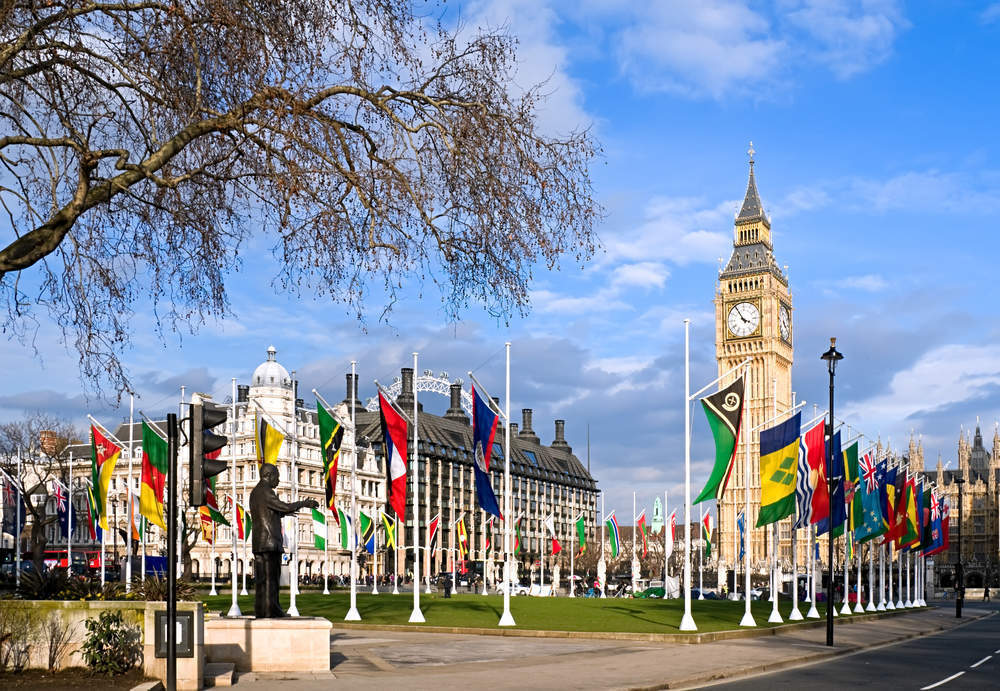
The UK Government is wrapped in a scandal over the immigration status of the Windrush generation, with thousands of people receiving threats to produce paperwork or risk being deported.
The Windrush generation were the first wave of immigrants to arrive to the UK from the Caribbean in 1948 after the British Government invited 492 West Indians to the country to fill shortages in the labour market and help re-build the post-war nation, with a right of abode granted to live and work in the UK freely.

Access deeper industry intelligence
Experience unmatched clarity with a single platform that combines unique data, AI, and human expertise.
However, 70 years later, many of the Windrush generation’s children are struggling to prove their legal right to remain in the UK. They are losing jobs, their homes and facing deportation to countries in the Caribbean that they have not lived in since childhood.
More than 140 MPs from all political parties have signed a letter to the British Prime Minister Theresa May regarding the threat of deportation that Commonwealth citizens are facing, while more than 136,000 members of the public have signed an online petition calling for amnesty for anyone who was a minor when arriving in Britain between 1948 and 1971.
Originally, May rejected a formal diplomatic request from 12 Caribbean countries to discuss the children of Windrush. However, since the publication of the MPs’ letter, May has decided to meet with the 12 representatives this week.
Internationally recognised law firm partner at Kingsley Napley, Marcia Longdon, explained how the Windrush children have managed to become unrecognised as British citizens.

US Tariffs are shifting - will you react or anticipate?
Don’t let policy changes catch you off guard. Stay proactive with real-time data and expert analysis.
By GlobalDataShe said: “In the 1950s, when people came to the UK from the Caribbean, it was common to travel on your parent’s passport. The 1981 Act meant people lost the right of abode.”
Because of this, many residents do not own British passports and have been forced to demonstrate their right to remain.
Longdon added: “I had a client last year who came to the UK in 1955 and received a letter from the Home Office saying ‘you have seven days to leave, you must report to your local police station’. She is now 65 years old and had therefore spent some 60 years here.
“She came on her aunty’s passport and in order to prove her right of abode, she had to obtain landing cards from 1955. The process is hell, why should they have to prove it?”
Fortunately for Longdon’s client, she was married to a British citizen and was able to provide evidence for citizenship. However, for the many Caribbean migrants who are not in this position, they are met with a much longer process and are coming to the attention of, as well as being reported to, the NHS and HMRC.
Longdon said: “There should be a blanket approach for everyone who arrived to have a right of abode. If they can show from their birth certificate and the age they arrived, any removal of those people would be illegal.
“It is disappointing that you have people who came to the UK as children and they have been here for over 40, 50 years contributing to the UK society, to then say that it is time to leave and considered illegal, is really sad and disappointing. There is no regard to the contribution made to the UK.”
Immigration Advice Service lawyer Aleksander Bucholski said:
“It is alarming that the British state targets its own citizens or lawfully settled persons, merely because certain people have never travelled outside the UK and thus never applied for a passport. Since the UK remains one of the few countries in the Western world not issuing its citizens with mandatory ID cards, nor it requires British nationals to hold a passport, the process of targeting the members of the Windrush generation needs to be stopped for the policy concerning evidence of lawful residence to be revised.
“In the absence of any records of their immigration status, the blind bureaucratic apparatus of the Home Office places the burden of proof on the immigrants, which is absurd given the fact that between 1948 and 1962 Commonwealth citizens were not subject to immigration control. What is more, the subsequent legislation, in particular the Immigration Act 1971 and the British Nationality Act 1981 recognised then lawful residents’ indefinite leave to remain, and in the case of those resident in the UK for a continuous period of five years or more – the right of abode, which in many cases led to them being considered British citizens after 1 January 1983.
“Given the sheer number of people affected, and the fact that it is clearly the government who either have not kept sufficient records of many people’s life in the UK, or have failed to trace those records, the onus should be on the British state to prove a person did not become a British citizen in 1983 or settled in 1971, not the other way around.”
UK Home Office immigration minister Caroline Nokes spoke to The Voice regarding the Windrush immigration status. She said: “We will handle every case with sensitivity and will help people understand what is required and help them gather the information they need.
“People don’t need formal records. Any information that people can provide, from schools they attended to places of work, family or former addresses will help build this picture.
“My main priority here is to dispel the myth that this government is clamping down on Commonwealth citizens – particularly those from the Caribbean – who have built a life here.”







